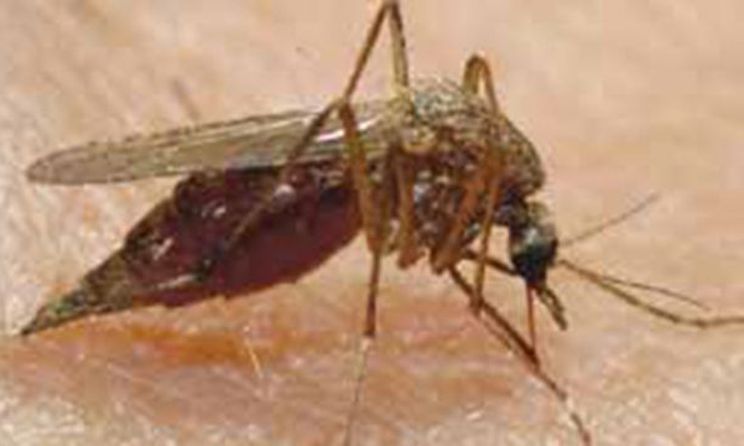Jonathon Liedtke – ourWindsor.ca – June 11, 2013
The temperature is getting warmer, the frequency of rainfall is increasing and the humidity is causing things to feel sticky. That can only mean one thing: it’s the 2013 West Nile Virus season in Windsor-Essex.
The West Nile Virus (WNV) is transmitted by mosquitoes to humans and a mosquito becomes infected when it bites a bird which is infected.
Last year, there were 22 documented cases of the virus in Windsor-Essex and just six in 2011, Dr. Alan Heimann, the Medical Officer of Health for the Windsor Essex County Health Unit isn’t able to tell whether or not 2013 will see higher or lower rates.
According to Heimann, the spread of the virus is determined by the turnover in the mosquito population and as such, “the amount of circulating virus [is] dependent on meteorological or weather conditions.”
“If you have a hot, wet summer, you’re going to have lots of places for the mosquitoes to breed and they’re going to have more of an opportunity to have an increased number of lifecycles and then the increased possibility of West Nile virus,” said Dr. Heimann.
Since 2003, the Health Unit has hired a consultant to provide surveillance and larviciding work for Windsor-Essex. The program is supported by the Ministry of Health and this year, the hired consultant is GDG Environmental.
“The consultants do larviciding after surveillance for mosquito larvae in catch basins and standing water on municipal property within two kilometers of populated areas,” said. Dr. Heimann who added that the Health Unit also has 20 adult mosquito traps which are set throughout the city and county.
“We look for and collect populations of mosquitoes, determine the species of those mosquitoes, and then have those mosquitoes tested for West Nile Virus and that gives us an idea of the presence of [the virus] in the area,” said Dr. Heimann.
While the actual testing of mosquitoes hasn’t started yet, Heimann said that GDG Environmental is actively looking for mosquito larvae.
Those thinking that the program is aimed to reduce the spread of mosquitoes and not the virus are mistaken as Dr. Heimann made clear that it “isn’t [a] mosquito control program” but rather is a “program to reduce the risk West Nile virus.”
The complications of the virus are more prevalent in older individuals and while the vast majority of individuals, almost about 98%, will have no signs or symptoms, only about 1% will have serious symptoms and less than 1% will have symptoms that require hospitalization.
Windsor saw two deaths which were associated with the West Nile virus in past years.
“These are individuals who were hospitalized, both were older individuals, they had other preexisting medical conditions that were part of their clinical workup, the virus was found and it may have contributed to the death,” said Dr. Heimann. “But there is no direct way of linking the virus as the cause of death.”

2013 West Nile virus season in Windsor-Essex
Jonathon Liedtke is the Features & Opinion Editor for the University of Windsor Lance Campus/Community Newspaper and a reporter for ourWindsor.ca. As a founding member and current Co-Chair of the Mayor’s Youth Advisory Committee, he is committed to representing, connecting, engaging with and advocating for local youth. He is also a member of Windsor’s “Punk with Horns” band The Nefidovs, and as such, is committed to enhancing and sustaining the arts community.


Leave a Reply